This year a record number of 39 candidates are running, beating the previous record of 24 candidates in the 2004 presidential election. Although 44 candidates registered, five took down their candidacies before the March 7 deadline and endorsed others.
They are listed in alphabetical order, next to the parties that nominated them.
1. Hennadiy Balashov (Party 5.10)
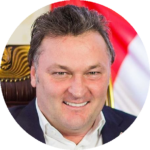
Best known as: self-proclaimed business guru
Businessman Hennadiy Balashov, 58, originally from Dnipro but living in Kyiv, spent the last decade coaching people on how to become rich. He hosted TV and radio shows and authored books on personal finance, entrepreneurship, and millionaire mindset.
In the late 1990s, Balashov co-founded a party For Beautiful Ukraine with Leonid Chernovetskyi, who went on to be the mayor of Kyiv in 2006-2010. Balashov’s political career includes a stint as a lawmaker at the Ukrainian parliament from 1998 to 2002.
Today, Balashov runs a small party called 5.10, which he founded in 2014. Headquartered in Kyiv, 5.10 positions itself as a libertarian party and advocates for a full tax abolishment in Ukraine, leaving only two taxes: 5 percent sales tax and 10 percent payroll tax.
The party backed Petro Poroshenko’s candidacy for president in the 2014 election. The same year, Balashov ran for mayor of Kyiv, but won only 2 percent of the votes.
2. Roman Bezsmertnyi (Rukh +380)
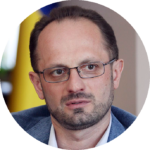
Best known as: Former deputy prime minister
Roman Bezsmertnyi, 54, was first elected to parliament in 1994 as a history teacher when he was 28. Since then, he has seen Ukrainian politics in and out as a lawmaker on the ballots of five parties, representative of the president in parliament and a deputy prime minister responsible for administrative and territorial reform in 2005.
He worked as a deputy head of presidential administration and served as an ambassador of Ukraine to Belarus. In 2015-2016, Bezsmertnyi represented Ukraine during the Minsk negotiations meant to find a peaceful resolution of Russia’s war in eastern Ukraine.
Now Bezsmertnyi says he got tired of the secondary roles in politics and decided to run for president. He advocates making Ukraine a parliamentary republic, breaking economic ties with Russia, and ending the ban on farmland sale.
He founded the party Rukh +380, named so after Ukraine’s telephone code, in early 2019, and wants to take it to parliament in the October election.
3. Inna Bogoslovskaya (self-nominee)
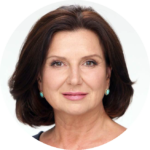
Best known as: Politician who has mastered the art of changing allegiances
Inna Bogoslovskaya, 59, has been in Ukrainian politics since 1998. Prior to that, the Kharkiv native made a career as a legal consultant and auditor.
Bogoslovskaya was elected lawmaker three times, reaching her peak as one of the most outspoken members of ex-President Viktor Yanukovych’s Party of Regions. She left the party in late 2013 and publicly supported the EuroMaidan Revolution.
Bogoslovskaya also served as deputy justice minister responsible for social policy and corporate law reform in 2007 and as the chair of the State Committee for Regulatory Policy and Entrepreneurship in 2003-2004. She ran for the presidency in 2010 but won only 0.4 percent of the votes.
Bogoslovskaya is running her second presidential campaign on the slogans of applying the Swiss model for Ukraine’s foreign policy (a neutral country with a well-armed and trained army), national economic egotism, reforming state governance towards decentralization, and introducing blockchain and e-governance technologies to minimize corruption.
4. Olha Bohomolets (self-nominee)
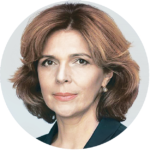
Best known as: Lawmaker against the healthcare reform
By trade, 52-year-old Olha Bohomolets is a doctor specializing in dermatology. In 2014, she ran for president of Ukraine but received only 1.9 percent of votes.
Currently, she is a lawmaker with Petro Poroshenko Bloc faction and head of the parliament’s healthcare committee. She is probably most known for her harsh opposition to the healthcare reform implemented by acting healthcare minister Ulana Suprun, which Bohomolets calls “genocide of Ukrainians.”
On a side note, Bohomolets has recorded five albums of lyrical songs and established a private museum in the Radomyshl Castle in Zhytomyr Oblast where she exhibits her impressive collection of some 5,000 Orthodox household icons.
5. Viktor Bondar (Vidrodzhennya)
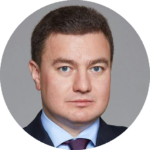
Best known as: Lawmaker, former governor of Dnipropetrovsk Oblast
Viktor Bondar, 43, is a lawmaker heading the 24-member Vidrodzhennya (Revival) faction in parliament.
Bondar started his career in public service working for the information department in the Cabinet of Ministers in early 2000s. President Victor Yushchenko appointed him the governor of Dnipropetrovsk Oblast in 2007. Bondar served as the governor for 2.5 years.
He has been a lawmaker since 2012, having once been a member of the faction of Yanukovych’s Party of Regions.
6. Yuriy Boyko (self-nominee)
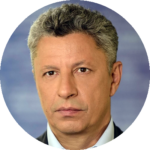
Best known as: Pro-Russian opposition politician who gave his name to one of the most notorious corruption schemes in Ukraine.
A former member of ex-president Yanukovych’s government and his, now disbanded, pro-Russian Party of Regions, Yuriy Boyko remains a key figure in post-EuroMaidan Ukraine. He is a lawmaker and until recently co-chaired the third largest faction in the parliament, the pro-Russian party Opposition Bloc.
In 2011, when Boyko was energy minister, his ministry scandalously purchased two over-priced drilling rigs for $800 million from shell firms — the scheme dubbed as “Boyko Towers.” In 2018, prosecutors said they hadn’t found evidence of Boyko’s role in the fraud.
As a presidential candidate, Boyko continues a Russia-friendly political line. He ranks fourth in most polls.
7. Oleksandr Danyliuk (self-nominee)
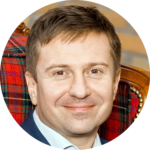
Best known as: Maidan activist, not to be confused with namesake former finance minister
Oleksandr Danyliuk is known as the leader of public organization Spilna Sprava (Common Cause) that gained prominence in 2010 during the Tax Maidan, mass protests against amendments to the Tax Code, and the 2014 EuroMaidan Revolution. In 2014, he briefly served as an advisor to then-Defense Minister Valeriy Geletey.
Danyliuk has been keeping a low profile since 2014. He is listed as an aide to lawmaker Viktor Kryvenko, who also runs for president.
8. Yuriy Derevyanko (Volya)
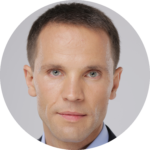
Best known as: Former ally of Mikheil Saakashvili
Yuriy Derevyanko, 45, is a lawmaker and a businessman from Ivano-Frankivsk.
In 2014, his party Volya ran for parliament in association with Lviv Mayor Andriy Sadovyi’s party Samopomich. Soon the alliance broke up, part of Volya members stayed with Samopomich, and Derevyanko became an independent lawmaker. Three years later, Volya joined the Movement of New Forces, an initiative headed by the now-exiled Mikheil Saakashvili, ex-governor of Odesa Oblast and ex-president of Georgia.
Derevyanko was one of the leaders of mass protests in front of the parliament that started with a tent camp in October 2017 by a group of pro-reform organizations. The protesters demanded the impeachment of Poroshenko and resignation of the government, among other things. The strike failed, and the tent camp was removed by police in March 2018.
9. Mykola Gaber (Patriotic Party of Ukraine)
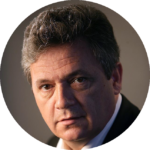
Best known for: Came last in the 1999 Ukrainian presidential election
Mykola Gaber, 58, relatively unknown for the wider public. He served as a member of parliament in the late 1990s and has failed to be elected ever since. He ran for president in 1999, coming in last and receiving 0.1 percent of the total votes cast.
Gaber serves as an aide to Andriy Reka, a member of parliament from People’s Front faction that holds 81 seats in the parliament.
10. Anatoliy Grytsenko (Civic Position)
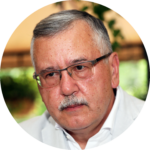
Best known as: Former Minister of Defense
Anatoliy Grytsenko, 61, first entered Ukrainian politics as an expert on security issues. Now he is running his third presidential campaign.
Grytsenko served two terms in parliament during 2007-2014 as a member of Nasha Ukraina and Batkivshchyna factions. He also served as defense minister during 2005 – 2007.
He campaigns on promises of his high integrity and competence, as well as independence from oligarchs.
Grytsenko is married to an acclaimed Ukrainian journalist Yulia Mostova, the editor-in-chief of Dzerkalo Tyzhnya weekly.
Read more: Kyiv Post interviews Anatoliy Grytsenko
11. Serhiy Kaplin (Social-Democratic Party)
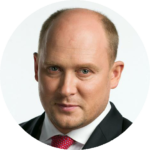
Best known for: His populist promise to cut gas prices four times
Lawmaker Serhiy Kaplin positions himself as a self-made man who went from zero — “a guy in a cheap prom suit from a small village in Poltava Oblast” — to the hero who made it to the top in Kyiv. He has been a lawmaker at the Ukrainian parliament since 2012, currently with the Petro Poroshenko Bloc.
He is also known as the leader of the Social Democratic Party, founded in 2015 as the Regular People Party and later renamed. His campaign slogans and the colors he uses copy those of the top candidate Yulia Tymoshenko.
Ukrainian media have been claiming that Kaplin is backed by Opposition Bloc lawmaker Serhiy Lyovochkin, former head of Viktor Yanukovych’s administration and business partner of oligarch Dmytro Firtash. Kaplin and Lyovochkin have a number of indirect connections: they had common employees and attack the same opponents. Kaplin claims he is independent.
12. Yuriy Karmazin (self-nominated)
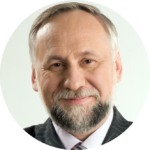
Best known as: Self-proclaimed Hetman of Ukraine
Before going into politics, Karmazin worked as a state prosecutor in Odesa. In 1994, he was elected to Verkhovna Rada as an independent lawmaker through one of Odesa’s voting districts. He was re-elected as a member of parliament in 1998, however his 1999 presidential bid was unsuccessful. In 2002, he was once again elected into parliament, this time as a member of Nasha Ukraina political party, led by Victor Yushchenko, who would go on to become president in 2004.
After the 2014 EuroMaidan Revolution, Karmazin became highly critical of the current regime, citing that the 2014 presidential elections were illegal, he later participated in multiple anti-government protests.
In 2018, Karmazin proclaimed himself the “Hetman” or Cossack military commander of Ukraine, which became the subject of jokes on social media.
13. Arkadiy Kornatsky (self-nominee)
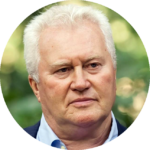
Best known as: Lawmaker, owner of agribusiness
Arkadiy Kornatsky, 65, is a member of the Ukrainian parliament with Petro Poroshenko Bloc faction and a member of the agrarian policy committee. A native of Mykolayiv Oblast, he owns two grain-producing companies and a law firm.
A few years ago, Kornatsky’s farm suffered an attack by unidentified armed men who tried to seize the property. In his presidential campaign, he promises to protect Ukrainian farmers from raiders and secure their land ownership.
14. Ruslan Koshulynskyi (United Nationalist Forces)
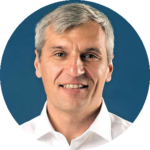
Best known as: Single presidential candidate for Ukrainian far-right
Ruslan Koshulynskyi, 49, spent most of his political career as a deputy to the leader of the Svoboda party, Oleh Tyahnybok. Last time Svoboda held seats in the parliament was in the pre-EuroMaidan convocation; and Koshulynskyi served as a deputy speaker in 2012-2014. Then in 2015, he lost the election for mayor of Lviv to Andriy Sadovyi.
Koshulynskyi, who doesn’t have a negative political history, was nominated as a compromise candidate, supported by the majority of Ukrainian nationalist organizations, except for one, the National Corps.
15. Viktor Kryvenko (Narodny Rukh Ukrainy)
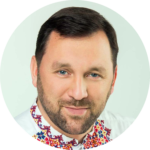
Best known as: Opposition lawmaker
Lawmaker Kryvenko was fifth on the Samopomich party ballot during the 2014 parliamentary elections, yet was excluded from the party after voting against the party in August 2015.
As of 2017, Kryvenko is the leader of Rukh, a Ukrainian political party created in 1989 by Vyacheslav Chornovil, a prominent Soviet dissident and Ukrainian politician.
Rukh’s main agenda is winning the war against Russia on the battlefield, including through developing new weaponry. The party also stands for Euro-Atlantic integration and the legalization of firearms.
16. Vitaliy Kupriy (self-nominee)
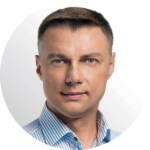
Best known as: Lawmaker with a TV show
A native of Kamianske town in Dnipropetrovsk Oblast, Vitaliy Kupriy is an independent member of the Ukrainian parliament. He has been in politics for over a decade and has changed at least four parties. Most recently, he was elected to parliament and joined Petro Poroshenko Bloc faction, which he soon left and became a member of UKROP party, backed by oligarch Ihor Kolomoisky. In July 2018, he left UKROP and said he was going to start his own political project.
Since 2018, Kupriy hosts an investigative show on ZIK television channel called Public Prosecutor that focuses on political corruption.
17. Illia Kyva (Socialist Party)
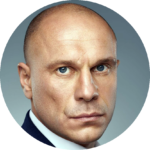
Best known as: Former adviser to Interior Minister Arsen Avakov and de jure leader of the Socialist Party.
Scandalous politician Illia Kyva, 41, made his career under the patronage of Interior Minister Arsen Avakov. He went from the leader of Poltava branch of the Right Sector, a far-right organization, to the head of the drug countering unit at the Nation Police, from where he was eventually fired.
His path from law enforcement into politics has been marked by a criminal conviction for bribery, for which he later was granted amnesty. Kyva often makes news due to his scandalous behavior: be it his homophobic posts on Facebook, direct threats of violence to anti-corruption activists, or photos of his naked muscular torso on Instagram.
18. Oleg Lyashko (Radical Party)
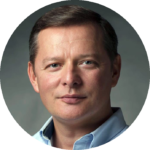
Best known as: Leader of the Radical Party, represented by 21 members in parliament
Oleg Lyashko, 46, was first elected to parliament as a member of Yulia Tymoshenko’a Bloc in 2006. After being excluded from the party, he founded the Radical Party in 2010. He ran in the 2014 presidential election and won the third place with 8.3 percent of the votes.
Lyashko campaigns on a populist, anti-elite platform. He pledges to keep the land moratorium, subsidize small farmers, increase wages, lower household utility prices, terminate international agreements and introduce the death penalty for corrupt government officials.
19. Yulia Lytvynenko (self-nominee)
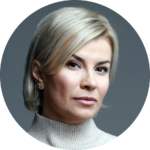
Best known as: TV anchor
Yulia Lytvynenko has been a high-profile TV personality since the late 1990s. She became a nationwide news presenter in 1999 on the state-owned UT-1 channel, now rebranded as UA Pershyi. She later worked on popular channels such as ICTV, K1, Inter, TVi and NewsOne.
From 2018, she became an anchorwoman on the pro-presidential Pryamyi channel, where she has been highly critical of the top presidential candidates Volodymyr Zelenskiy, who she earlier worked with on Inter TV channel.
Most of Lytvynenko’s campaign focused on placing a plethora of online ads denouncing Zelenskiy and another top candidate, Yulia Tymoshenko.
20. Oleksandr Moroz (Socialist Party of Oleksandr Moroz)
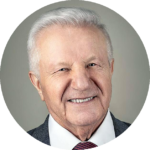
Best known as: Former leader of the Socialist Party, former speaker of parliament
The 74-year-old veteran politician entered politics in 1990, when he was elected to the Verkhovna Rada as a member of the Communist Party of the Soviet Union. In August of 1991, when Ukraine proclaimed independence from the Soviet Union, Moroz was the leader of the Communist faction in Ukraine’s parliament.
In the 1990s, Moroz was one of the leaders of the opposition and a strong critic of President Leonid Kuchma. He participated in the drafting of Ukraine’s constitution.
Moroz supported the Orange Revolution in 2004, however switched sides after the 2006 parliamentary elections, entering a coalition with Viktor Yanukovych and Petro Symonenko of the Communist Party, and becoming the speaker of parliament. After cross-benching, he lost popular support, with his party failing to be elected to parliament ever since. He hasn’t been.
21. Valentyn Nalyvaichenko (Civil Movement Spravedlivist)
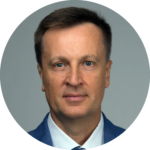
Best known as: Former head of State Security Service
A trained spy and a diplomat, Valentyn Nalyvaichenko served as the head of the Security Service of Ukraine twice, in 2006-2010 and in 2014-2015. After President Petro Poroshenko dismissed him, Nalyvaichenko became a critic of him and the government.
He has been appearing in media exposing the corruption of top officials. In 2015, he himself was a subject of an expose: journalists uncovered that Nalyvaichenko’s family received land plots for free from the state, won state contracts, and had business connections to oligarch Dmytro Firtash.
22. Roman Nasirov (self-nominee)
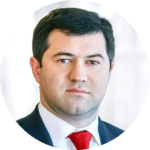
Best known as: Former tax chief currently on trial for corruption
In March 2017, then-head of the State Fiscal Service of Ukraine Roman Nasirov was barely conscious at his own trial at the Kyiv Solomyansky District Court. He was lying on a stretcher under a blanket as prosecutors read their charges against him: abuse of powers in a form of writing off taxes that cost the state some Hr 2 billion ($74 million).
In March this year, Nasirov is still on trial – and on the presidential ballot.
Nasirov was released from custody on Hr 100 million ($3.7 million) bail. Less than a year later, he was officially fired from his top post: not for being on trial but for having second citizenship, a British one. In December 2018, however, a Kyiv court reinstated him as the tax chief citing procedural violations during his dismissal.
23. Andriy Novak
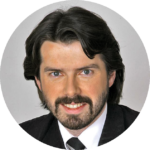
Best known as: Political analyst on Ukrainian TV shows
Novak is best known as an economist and political analyst on Ukraine’s TV channels. He was a deputy rector of European University, a private Ukrainian college.
24. Serhiy Nosenko
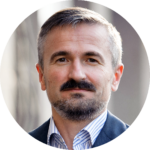
Best known as: Entrepreneur doing business in the United States and Europe
Nosenko is an independent presidential candidate and businessman. He has worked in a French consulting group Coris Group, and later in a U.S.-based investment banking group International Investment Partners.
Nosenko’s political platform is based on systematizing Ukraine tax regulations, canceling most of them. He also argues for de-monopolization and full privatization of state companies. Nosenko also puts an emphasis on legalizing the possession of weapons.
25. Volodymyr Petrov
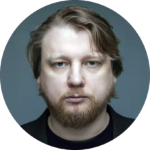
Best known as: Scandalous blogger and political consultant under house arrest
Volodymyr Petrov is the first presidential candidate under house arrest. He is accused of orchestrating a smear campaign against a top police official, which allegedly included Petrov and his associates paying a young woman to claim the official harassed her on Tinder.
Petrov is notorious in the political PR circles in Ukraine and has worked for various politicians. He is a relatively popular internet persona: Having started with a blog on Livejournal he eventually moved to YouTube where he makes his own show mocking politicians and celebrities.
26. Petro Poroshenko (self-nominee)
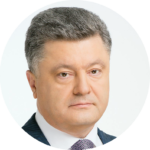
Best known as: Fifth president of Ukraine
Petro Poroshenko is the incumbent president of Ukraine seeking re-election. He is a veteran politician having served as a member of the cabinet under both Presidents Viktor Yushchenko and Viktor Yanukovych, first as the head of the National Security and Defense Council in 2005, head of the National Bank of Ukraine in 2007-2012, foreign minister in 2009-2010 and finally as minister of economic development in 2012.
Poroshenko has served as a member of parliament between 1998 and 2014, first elected under the Social Democratic Party of Ukraine, which was led by Viktor Medvedchuk, a pro-Russian politician.
Poroshenko is an oligarch owner of Ukraine’s largest confectionary holding Roshen, a news station Channel 5, and a number of other businesses. Poroshenko appeared in the Panama Papers, setting an offshore company to own his businesses.
As president he is credited with signing the Association Agreement with the European Union, receiving visa-free status with the EU and pushing for Ukrainian Church independence.
27. Ruslan Rygovanov
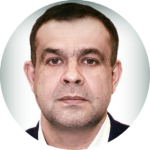
Best known for: Appearing on Russian TV shows
Independent presidential candidate Rygovanov was born in Horlivka, a town in Donetsk Oblast currently occupied by Russian-backed separatists. In 2014, he was an assistant to independent lawmaker Natalia Veselova, who was elected to parliament on the Samopomich party ballot but was later expelled from the party faction. Veselova dismissed Rygovanov, allegedly for appearing on Russian talk shows.
Both Veselova and Rygovanov became eventually part of the reformist Syla Lyudey political party, yet later left the party as well.
28. Ihor Shevchenko (self-nominee)
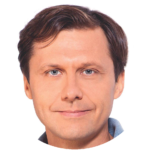
Best known as: Former ecology minister looking for a wife and an associate of gas trader Oleksandr Onyshchenko.
Ihor Shevchenko, 47, a former lawyer, has switched from legal practice to politics in 2011. He founded and headed a small party called the Meritocratic Party of Ukraine, which he left in 2016.
He served as ecology minister for a little over six months in 2014-2015. He left amid a conflict with then-Prime Minister Arseniy Yatsenyuk, who accused him of representing the interests of millionaire businessman and lawmaker Oleksandr Onyshchenko.
Shevchenko’s presidential program includes slashing taxes for the poor, lowering taxes for the middle class, and stringently applying tax to the super rich. He also promotes liberalizing labor legislation and lifting the ban on the farmland sale.
To boost his popularity Shevchenko, who is unmarried, runs a reality-show-like contest for women who want to be his wife. It has been called out as sexist.
29. Oleksandr Shevchenko (UKROP)
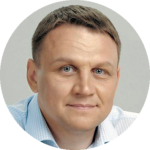
Best known as: Former director of Bukovel skiing resort
Oleksandr Shevchenko, 47, entered politics in 2014, when he was elected as a member of parliament from Ivano-Frankivsk electoral district. Once elected, he joined the Petro Poroshenko Bloc fraction but left it a year layer.
Shevchenko is best known as the former director of a skiing resort Bukovel in the Carpathians, which used to be owned by Ukrainian oligarch Ihor Kolomoisky.
Shevchenko runs for president as a candidate of UKROP, a party established by Kolomoisky’s associates in Dnipro back in 2014, when the oligarch was the governor of Dnipropetrovsk Oblast.
30. Vitaliy Skotsyk (self-nominee)
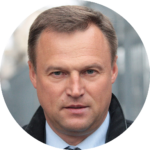
Best known as: Chairman of the Agrarian Party
Before going into politics, economist Vitaliy Skotsyk, 46, had a successful career in the agricultural sector. Like for most parties that have nominated their candidates for president this year, for the Agrarian Party the presidential election is a springboard for the parliamentary election in fall. So far the party has shown good results in local elections.
Agricultural sector is at the center of the party’s ideology as the main driver of Ukraine economy. The party, however, lobbies against lifting the moratorium on farmland sales, a move seen by many economists and international donors as a boost of investment into Ukraine’s agrosector, hungry for finance.
This led to questions whose interests the Agrarian Party pursues: of ordinary farmers or large agroholdings. In 2017, Chesno civil movement found that much of the party’s funding comes from agroholdings, which allowed it to become one of the richest parties in the country.
31. Ihor Smeshko (self-nominee)
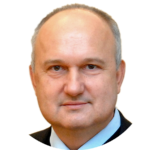
Best known as: Former head of the Security Service of Ukraine under President Kuchma
Ihor Smeshko, 63, began his career as a military officer serving as a military attaché in the Ukrainian embassy in Washington, D.C., in 1992. His career peaked in 2003, when he was appointed the head of the Security Service of Ukraine.
In 2004, then-presidential candidate Viktor Yushchenko was allegedly poisoned during a dinner with Smeshko and two more people. Smeshko stated on multiple occasions he didn’t poison Yushchenko. Yushchenko fired him after getting elected in 2005.
Smeshko served as an advisor to President Petro Poroshenko from 2014 until January 2019, when he declared he would run for the presidential seat himself.
32. Oleksandr Solovyov (Rozumna Syla)
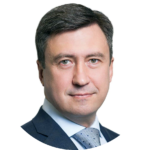
Best known as: Former tax police official
Solovyov is a former tax police officer turned politician. In 2016, he registered a party called Rozumna Syla (Smart Force) which then nominated Solovyov as the party’s 2019 presidential candidate.
Solovyov rolls on a platform of Ukraine’s state neutrality, peace talks with Russia, broad decentralization. He proposes electing regional governors instead of appointing them, cracking down on far-right radical group and canceling lustration, allowing former government officials to be reinstated on their posts.
33. Serhiy Taruta (Osnova)
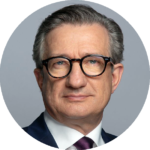
Best known as: Former oligarch, former governor of Donetsk Oblast
Serhiy Taruta, 63, is a businessman and once was a billionaire (according to Forbes, he was worth $2.65 billion in 2008). He saw his fortune shrink since Russia started its war in eastern Ukraine, where he owned some steel enterprises. In mid-1990s Taruta, together with Vitaliy Haiduk, co-founded the Industrial Union of Donbas, a major steel conglomerate.
Taruta has been involved in politics since the early 2000s, when he was elected to Donetsk city council. He came into prominence in March 2014, when he was appointed the governor of Donetsk Oblast, where the war was already starting. He was elected a member of parliament from Mariupol electoral district in 2014.
Taruta owned three football clubs (Metalurg Donetsk, Stal Alchevsk, Stal Kamyanske) and a hockey club Sokil Kyiv, all of which went bankrupt.
On March 16, Taruta has endorsed another candidate, Yulia Tymoshenko, but it was too late for him to withdraw his candidacy, so he will still appear on the ballot.
Read: One-time oligarch Serhiy Taruta stumbles towards presidency
34. Yulia Tymoshenko (Batkivshchyna)
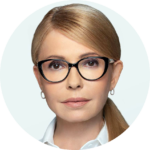
Best known as: Former prime minister
The 58-year old veteran politician was a runner-up in the 2010 and 2014 presidential elections, losing first to Viktor Yanukovych and later to Petro Poroshenko.
Tymoshenko entered politics in the late 1990s, when she was elected a member of parliament on behalf of Hromada political party, led by Pavlo Lazarenko, a Ukrainian prime-minister convicted in the USA on corruption charges. Tymoshenko served as the deputy Prime Minister in Viktor Yushchenko’s cabinet, later supporting the Orange Revolution which led to Yushchenko’s presidency.
Tymoshenko served twice as Prime Minister of Ukraine between 2005 and 2010. She also was placed on trial twice during her political career. In 2001, she spent a month in jail accused of smuggling gas. In 2011, she was sentenced to seven years in prison on charges of abusing power when signing gas contracts with Russia. The case was believed to be politically motivated. She was released from prison in 2014, after the EuroMaidan Revolution ousted Yanukovych.
She is the head of Batkivshchyna, a party with 20 representatives in parliament. She used to lead the election polls in late 2018, but gave way to actor Volodymyr Zelenskiy in January 2019.
35. Yuriy Tymoshenko (self-nominee)
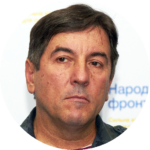
Best known as: Yulia Tymoshenko’s namesake
Lawmaker Yuriy Tymoshenko had been unknown to a wider public until he was expelled from his faction, People’s Front, for planning to run for president. Tymoshenko has denied he is a spoiler candidate sent to steal votes from his namesake Yulia Tymoshenko by her opponents — an age-old trick used in politics. The two have the same last name, first name initials, and even patronymic.
Yuriy Tymoshenko claimed there had been an attempt to bribe him with Hr 5 million to withdraw his candidacy from the race. He refused. In interviews to media, he voiced his ambition to make it to the runoff and win – something that, according to the polls, isn’t going to happen.
36. Oleksandr Vashchenko (self-nominated)
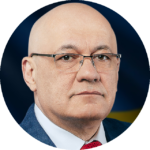
Best known as: Low-profile business owner
Oleksandr Vashchenko, 57, is one of the most obscure candidates for the presidency. He is a businessman and a native of Sumy Oblast. He heads a small party called Vlada Narodu. He has a vague presidential program with the signs of nationalism, promising to proclaim “a declaration of the supremacy of the Ukrainian people’s rights.”
37. Oleksandr Vilkul (Opposition Bloc)
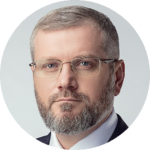
Best known as: Former deputy prime minister under Yanukovych
Before entering politics, Oleksandr Vilkul, 44, worked as a director of three mining and processing plants owned by Ukraine’s richest businessman Rinat Akhmetov and a pro-Russian MP Vadym Novinsky.
He entered politics in 2006, being elected to parliament on the ballot of the Party of Regions, of which Akhmetov was one of the main sponsors. He served as governor of Dnipropetrovsk Oblast in 2010-2012, and deputy prime minister in 2012-2014. After Yanukovych fled Ukraine in 2014 and his party was reborn as the Opposition Bloc, Vilkul became its member.
He is the son of Yuriy Vilkul, a local politician who currently serves as mayor of Kryviy Rih, the hometown of both Vilkuls in Dnipropetrovsk Oblast.
Vilkul is running his presidential campaign on the slogans of Ukraine’s neutrality, obtaining peace for eastern Ukraine, and achieving economic growth.
38. Volodymyr Zelenskiy (Servant of the People)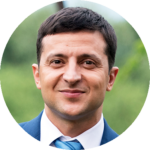
Best known as: TV personality
Popular comedy actor and producer Volodymyr Zelenskiy stormed the polls and ranked second long before he announced he was running for president. He has been leading the polls since late January, much to the terror of veteran politicians.
He runs a populist election campaign, which he turned into a reality show and blended with the promotion of his television series, “Servant of the People,” in which he plays an ordinary history teacher who becomes president of Ukraine. His newly-created party bears the same name as the show.
An absence of political experience or a comprehensible political platform doesn’t seem to be an issue for his young voter base who, political experts say, are ready to elect a new face in defiance of long-time ruling elites.
39. Vasyl Zhuravliov
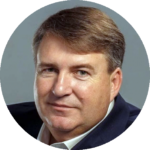
Best known as: President of Mariupol Football Federation
Businessman Vasyl Zhuravliov entered politics in 2014, when he became an aide to lawmaker Dmytro Lubynets from the 135-member Petro Poroshenko Bloc. In 2016 he registered a low profile Stability political party on behalf of which he decided to run in the upcoming presidential elections.
Zhuravliov owns several is the head of Mariupol Football Federation and is close to Andriy Pavelko, president of Ukraine’s Football Federation and lawmaker from Petro Poroshenko Bloc who was accused of illicit enrichment by multiple journalist investigations. Pavelko is a close ally of President Petro Poroshenko.
Zhuravliov’s political platform has few differences from the incumbent president’s political agenda, except for one key point: he stands for free possession of weapons.
You can also highlight the text and press Ctrl + Enter




